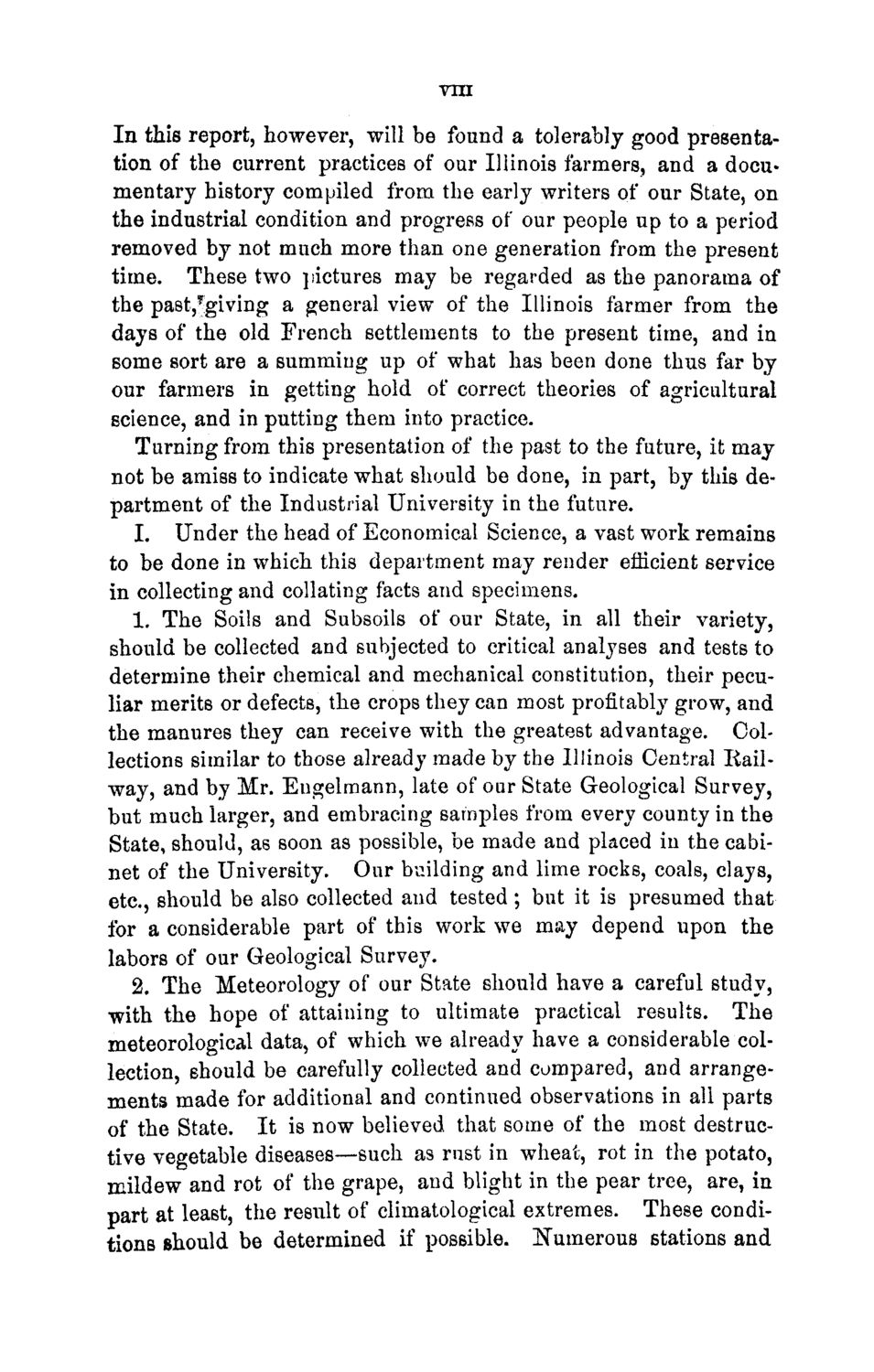| |
| |
Caption: Board of Trustees Minutes - 1868
This is a reduced-resolution page image for fast online browsing.

EXTRACTED TEXT FROM PAGE:
vm I n this report, however, will be found a tolerably good presentation of the current practices of our Illinois farmers, and a docu* mentary history compiled from the early writers of our State, on the industrial condition and progress of our people up to a period removed by not much more than one generation from the present time. These two pictures may be regarded as the panorama of the past,*giving a general view of the Illinois farmer from the days of the old French settlements to the present time, and in some sort are a summing up of what has been done thus far by our farmers in getting hold of correct theories of agricultural science, and in putting them into practice. Turning from this presentation of the past to the future, it may not be amiss to indicate what should be done, in part, by this department of the Industrial University in the future. I. Under the head of Economical Science, a vast work remains to be done in which this department may render efficient service in collecting and collating facts and specimens. 1. The Soils and Subsoils of our State, in all their variety, should be collected and subjected to critical analyses and tests to determine their chemical and mechanical constitution, their peculiar merits or defects, the crops they can most profitably grow, and the manures they can receive with the greatest advantage. Collections similar to those already made by the Illinois Central Railway, and by Mr. Engelmann, late of our State Geological Survey, but much larger, and embracing samples from every county in the State, should, as soon as possible, be made and placed in the cabinet of the University. Our building and lime rocks, coals, clays, etc., should be also collected and tested; but it is presumed that for a considerable part of this work we may depend upon the labors of our Geological Survey. 2. The Meteorology of our State should have a careful study, with the hope of attaining to ultimate practical results. The meteorological data, of which we already have a considerable collection, should be carefully collected and compared, and arrangements made for additional and continued observations in all parts of the State. It is now believed that some of the most destructive vegetable diseases—such as rust in wheat, rot in the potato, mildew and rot of the grape, and blight in the pear tree, are, in part at least, the result of climatological extremes. These conditions should be determined if possible. Numerous stations and
| |